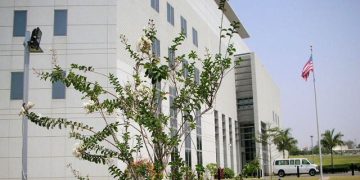United States President, Joe Biden, has rekindled the US’ interest in promoting LGBTQ rights on the global stage, particularly in countries perceived as intolerant to sexual minorities like Nigeria.
Scaling up a presidential memorandum ratified by the Obama administration in 2011, which had sought to advance the rights of the queer community, Biden, in a new memo last week directed all U.S. embassies and executive departments to “promote and protect the human rights of lesbian, gay, bisexual, and transgender persons everywhere.”
The newly inaugurated U.S. leader explicitly instructed the country’s foreign agencies to combat the criminalisation of LGBTQI+ status or conduct abroad.
Biden’s memo stated:
Specifically, I direct the following actions, consistent with applicable law:
Section 1. Combating Criminalization of LGBTQI+ Status or Conduct Abroad. Agencies engaged abroad are directed to strengthen existing efforts to combat the criminalization by foreign governments of LGBTQI+ status or conduct and expand efforts to combat discrimination, homophobia, transphobia, and intolerance on the basis of LGBTQI+ status or conduct.
Nigeria’s anti-gay laws have been increasingly censured by global rights groups, which have categorised the country as overtly homophobic.
Former Nigerian President, Goodluck Jonathan, amidst international pressure, signed the Same-Sex Marriage (Prohibition) Act in January 2014, prescribing between 10 to 14 years in prison for cohabitation between same-sex sexual partners, public show of same-sex relationship, registration, operation or participation in gay clubs, societies and organisation, amongst others.
READ ALSO: Rotimi Amaechi Reveals Who Can Decide Buhari’s Successor
The Biden Presidency, however, threatens “swift and meaningful” responses, including financial sanctions against countries found guilty of human rights abuses of LGBTQI+ persons.
The memo warned:
When foreign governments move to restrict the rights of LGBTQI+ persons or fail to enforce legal protections in place, thereby contributing to a climate of intolerance, agencies engaged abroad shall consider appropriate responses, including using the full range of diplomatic and assistance tools and, as appropriate, financial sanctions, visa restrictions, and other actions.
As a predominantly conservative country, it was unlikely that Nigeria would revisit its anti-gay marriage law to strengthen bilateral relations with the United States.
















